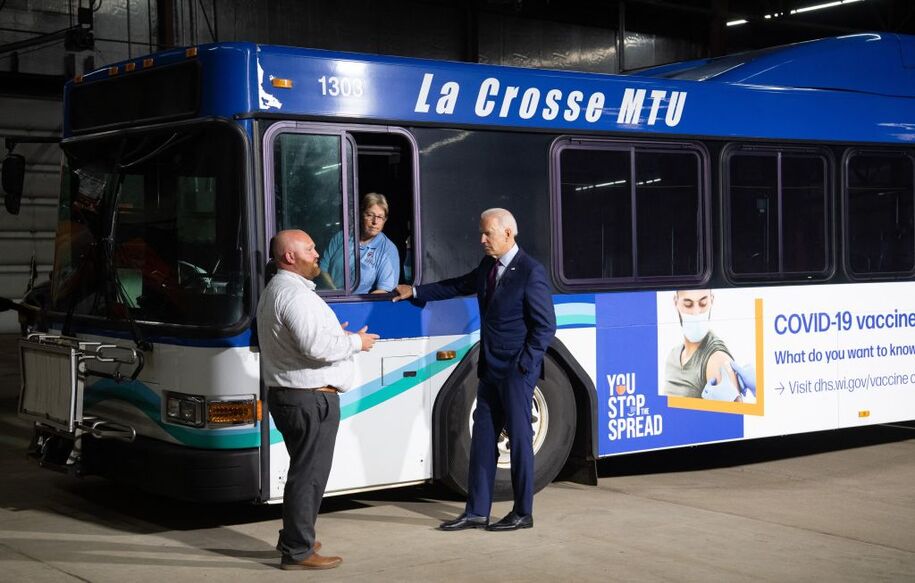
That’s going to largely be up to McConnell, unless 10 of his members finally decide to grow spines and vote in their own self-interest rather than his. As of yet the maximum number of senators who have been willing to buck him has been six. That’s how many Republicans refused to grant his “personal favor,” and voted for the Jan. 6 commission. Pennsylvania Sen. Pat Toomey said he would have voted for it, but decided not to be present on the day of the vote, so he doesn’t count.
With these battling far-right pressure groups lining up against one another, Politico is still going with the Democrats in disarray narrative. It’s the moderates versus the liberals in their telling. Never mind that it’s Democrats working to achieve a critical policy goal for rebuilding not just the nation’s infrastructure but Americans’ lives, while Republicans are fighting amongst one another over who gets to light the match that will burn everything down.
Senate Majority Leader Chuck Schumer is working on a timetable to get both the bipartisan bill—which as of yet is not in legislative text—and a budget resolution that includes reconciliation instructions for infrastructure dealt with this summer. He’s working as though both can pass, but also seems to be preparing for the eventuality that Republicans ditch the bipartisan effort and Democrats have to do it alone in a big reconciliation bill.
In a letter to Senate Democrats Friday, Schumer writes “When the Senate returns to session, we will keep working to pass President Biden’s American Jobs and Families Plan,” demonstrating that he intends to treat this as one big package. According to Politico, he has also “been constantly dialing up White House Chief of Staff Ron Klain, as well as his members in the bipartisan group and committee chairs in charge of a party-line spending bill, whose work will run into the trillions.” Budget Chair Bernie Sanders is putting that number at $6 trillion. The moderates are pushing to bring that down to $4 trillion. The bipartisan plan is roughly $1 trillion.
“The Senate Dems should look at each other and say: ‘We’re committed to doing a reconciliation bill.’ And I know Manchin is,” Sen. Tim Kaine told Politico. Manchin is on board, though how much he’ll be willing to spend is unclear. But Manchin has also indicated he’s absolutely fine with rolling back some of the 2017 Trump tax cuts, so any reluctance he is demonstrating on reconciliation is likely performative. If Manchin is there, Arizona’s Kyrsten Sinema is unlikely to be willing to stand on her own in opposition.
The only real guarantee at this point is that it’s going to be messy and difficult—there’s just too much at stake for it to be otherwise. House Budget Chair John Yarmuth, who’s shepherding the bills in the House sums it up neatly. “If you add the two plans together, it would be the biggest bill in the history of the country. There’s no way it’s going to be easy.”
Source: http://feeds.dailykosmedia.com/~r/dailykosofficial/~3/KGmN8cCkMJ8/-Infrastructure-fight-is-about-the-soul-of-the-GOP-Will-the-Chamber-or-the-Trumpists-prevail